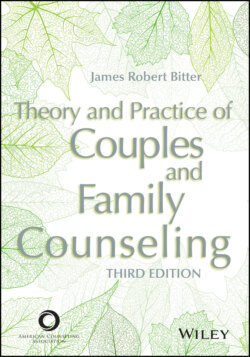Читать книгу Theory and Practice of Couples and Family Counseling - James Robert Bitter - Страница 88
CHAPTER 4
Virtue, Ethics, and Legality in Couples and Family Practice
ОглавлениеMark Young, David Kleist, and James Robert Bitter 1
In this chapter, we consider three aspects of professional work that should be related but often are not even complementary to one another: virtue or goodness, professional ethics codes, and legal conduct.
We want you to think about what constitutes personal and relational virtue—a good life—and the morality that supports these two. In recent years, virtue has become almost exclusively the domain of religion, but once it was a matter of public discourse (see Aristotle, 350 B.C.E./1985; Cicero, 44 B.C.E./1991; Plato, 380 B.C.E./1992; and more recently, Bellah et al., 1991, 1996)—and it needs to be again. We also look at the masters of family counseling who might contribute to this discussion.
Although professional ethics can serve as guidelines for appropriate conduct with clients as well as provide opportunities for the personal learning and growth of the professional helper (Corey et al., 2019; Sperry, 2007), practicing ethically has too often been addressed simply as a means of avoiding malpractice lawsuits (Austin et al., 1990). Real ethical questions in family practice are almost never easy to answer, and even the principles that underlie our professional codes often need adjusting for application across cultures, across locations, and with multiple genders (Wilcoxon et al., 2013).
The legal requirements of each state also define practitioners’ responsibilities in relation to professional practice. This is especially true in the areas of confidentiality; child and elder abuse; harm to self, others, and sometimes property; informed consent; dual relationships; professional identity and competence; and education and training. In addition, there are federal requirements to consider, such as the Health Insurance Portability and Accountability Act of 1996 (HIPAA)2 and Jaffee v. Redmond (1996), which deal with federal validation and limitations on confidentiality in psychotherapy. Although personal virtue and professional ethics ought to be foremost in our relationships with clients, it is the laws of each state and the federal government that ultimately dictate these standards in our work.
